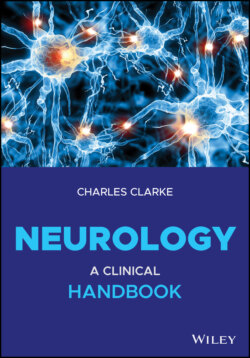Читать книгу Neurology - Charles H. Clarke - Страница 100
History
ОглавлениеThe narrative, from the patient, and witnesses provides vital data. How to take a present, past and family history is assumed. Pitfalls occur in three areas:
First, vividness comes from a verbatim account. Abbreviations are rife. ‘Fitted on way to A&E – bitten tongue….’ is familiar medical shorthand. The inference is a generalised tonic–clonic seizure, but it does not indicate what was actually said:
I was standing on the 73 bus near King’s Cross first thing taking mum to hospital. I felt all dizzy …. my eyes went all funny, my legs went weak and out I went. I came to on the floor, in a pool of blood. Mum says I fainted. But then the ambulance came and they said I was shaking. I’d bitten my lip….I was right as rain in a minute but they said they thought I’d had a fit.
Syncope, a simple faint, is obvious.
Secondly, identify temporal patterns:
Intermittent events with recovery. Common: epilepsy, migraine, syncope and TIAs. Rarer: paroxysmal dyskinesias.
Intermittent, with relapses and remissions: MS is the typical example.
Progressive, chronic: neurodegenerative and neoplastic disorders.
Acute or subacute and progressive: usually infective, vascular or inflammatory.
Acute onset, single insult, with some recovery. Stroke is the prime example. Guillain–Barré and traumatic brain injury are others.
The long time scale can sometimes be forgotten – prolonged febrile convulsions in infancy or a head injury long ago can be of relevance to later seizures. Family history may be relevant.
Thirdly, one’s own attitude – the balance between critical appraisal and sympathy. Judgmental approaches interfere with diagnosis, and lead to complaints. Our principal purpose is to help.
Many patients find unfamiliar questions difficult. There is no such thing as a ‘hopeless historian’ – it’s the neurologist’s fault. Patients today are well‐informed, but the unsympathetic neurologist remains well described. Patients do actually suffer from their complaints. That first visit carries a burden – a serious diagnosis is often in mind. Patients and relatives hang upon single comments. Depression and anxiety are common.
